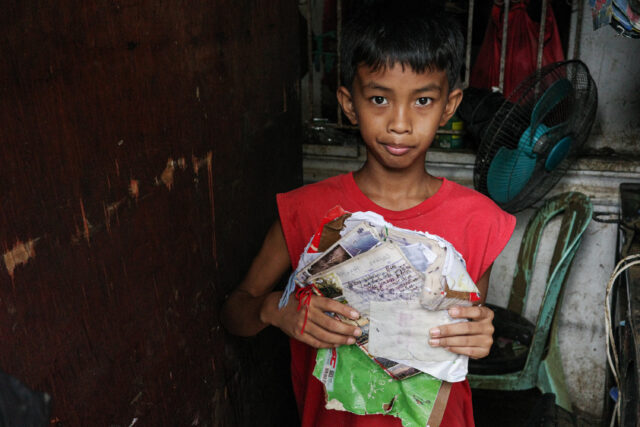Manila, 16 June 2025 – As children go back to school today and as the rainy season begins, UNICEF Philippines urges the Philippine government to promote safe, equitable, and continuous access to quality education by making the Nationally Determined Contributions (NDC 3.0) child-sensitive. The NDC is a climate action plan required by the Paris Agreement signatories, which the government plans to submit ahead of the COP30 UN Climate Change Conference in Belém, Brazil.
Children in the Philippines – who make up a third of the country’s population – are at high risk from the impacts of climate and environmental shocks. According to the World Risk Index (WRI), the Philippines registered the highest disaster risk index for three consecutive years in a row. A UNICEF Report also ranks the Philippines the second highest in the East Asia and the Pacific Region in terms of climate risk from a child’s perspective.

The Philippine government acknowledges the challenges in the education sector brought about by climate change. The Second Congressional Commission on Education (EDCOM II) Year 2 Report revealed that students lose up to a month’s worth of school days due to class disruptions caused by climate-related events. Schools are often converted into evacuation centers when disasters happen, despite the provisions of the Children’s Emergency Relief and Protection Act (Republic Act No. 10821) stating that they should only be considered as a last resort. Limited access to transportation and damage to infrastructure and learning materials further impede children’s learning. Aside from missed school days, the same report cited the Department of Education’s annual losses of PhP 17.98 billion due to high hazard exposure.
“The climate crisis is not just changing the planet, it is changing children. The health and development of children’s brains, lungs, immune systems, and other critical functions are affected by their environment. Climate-related class disruptions deprive them of opportunities to develop the necessary foundational and socioemotional skills to thrive in the future. For children to achieve their full rights to education, the NDCs need to commit to adaptation measures to promote safe, equitable, and continuous access to quality education for all. Later is too late. We need to transform climate goals into reality for children now,” said Behzad Noubary, UNICEF Philippines Representative Ad Interim.
According to UNICEF, education systems can be climate-resilient and can play a critical role in equipping the school community with the knowledge, skills, and values needed for the green transition. UNICEF asks the Philippine Government to make the necessary investments in infrastructure, curricula, learning materials, teacher training, and alternative delivery modes to support flexible learning strategies when classes are disrupted.
UNICEF contributes to resilience-building in education by equipping school communities, school heads, teachers, and learners with standards and skills to become climate and disaster resilient, helping schools prepare for and recover after emergencies and disasters, strengthening inclusive and child-centered disaster risk reduction and participatory climate action, and empowering learners to advocate for their own rights.





